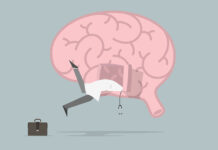The All Party Parliamentary Group for Prescribed Drug Dependence isssue a Press Release, announcing a new study into depedence on and withdrawal from antidepessant drugs.
The Journal of Addictive Behaviors has today published a new systematic review which shows that antidepressant withdrawal is much more widespread, severe and long-lasting than indicated by current guidelines, with millions of antidepressant users in the U.K. potentially affected. ‘A Systematic Review into the Incidence, Severity and Duration of Antidepressant Withdrawal Effects: Are Guidelines Evidence-Based?’ was undertaken by Dr James Davies, University of Roehampton and Professor John Read, University of East London, on behalf of the All Party Parliamentary Group for Prescribed Drug Dependence.
The review indicates that an average of 56% of patients who stop or reduce their antidepressants experience withdrawal symptoms, with 46% of these reporting their symptoms as severe. Furthermore, most of the studies reviewed on duration found that a significant proportion of patients experienced withdrawal symptoms for more than two weeks, and that it is not uncommon for patients to experience symptoms for several weeks, months, or longer. According to one study, 40% of patients experience symptoms for at least 6 weeks, and another indicates that 25% experience symptoms for at least 3 months.
Based on this data, the authors estimate that around 4 million people in England may experience symptoms when withdrawing from antidepressants, and around 1.8 million may experience these as severe. In all, these findings contradict current national clinical guidelines (issued by NICE – the National Institute for Health and Care Excellence), which state that antidepressant withdrawal symptoms ‘are usually mild and self-limiting over about 1 week but can be severe’
Dr James Davies said: ‘This new review of the research reveals what many patients have known for years – that withdrawal from antidepressants often causes severe, debilitating symptoms which can last for weeks, months or longer. Existing NICE guidelines fail to acknowledge how common withdrawal is and wrongly suggest that it usually resolves within one week. This leads many doctors to misdiagnose withdrawal symptoms, often as relapse, resulting in much unnecessary and harmful long-term prescribing.’
Sir Oliver Letwin MP, chair of the APPG for Prescribed Drug Dependence, commented: ‘This systematic review provides important new data on antidepressant withdrawal which will be considered by Public Health England as part of their current review into prescribed drug dependence. The data suggests that existing medical guidelines in this area should be urgently updated to reflect the fact that antidepressant withdrawal is much more common, severe and long-lasting than previously stated. Furthermore, we hope that other medical bodies will take note of this new research, and update their own guidance accordingly.’
Further Information
A systematic review into the incidence, severity and duration of antidepressant withdrawal effects: Are guidelines evidence-based?
The Daily Mail – Now doctors MUST wake-up to the dangers of patients hooked on depression pills
BBC News – Antidepressant Withdrawal ‘hits millions’
The Times – Millions face severe side‑effects when coming off antidepressants
Huffington Post – How To Come Off Your Antidepressants Safely – Tips From Mental Health Experts
The Guardian – Antidepressant withdrawal symptoms severe, says new report
The Independent – Antidepressants cause withdrawal symptoms in over half of patients who try to quit them, review shows
New Scientist – The truth about whether antidepressants work and who should take them
Men’s Health – Antidepressant Withdrawal Can Cause Anxiety, Sleep Problems And Hallucinations
The Sun – Ill From Pills




“I have no sons left”
Fiachra, The pain experienced in watching this incalculable tragedy, suffering and despair is intense.
To have to live with the reality of this, and to strive on with resilience commands empathy, as well as my utmost respect.
There are words spoken at two minutes into the video which cause me profound concern:
“It was hell because he never got much sleep. He paced them floors at night time”.
Was this the pacing of despair? – or was this the pacing of AKATHISIA?
I don’t and cannot know.
I have no knowledge of what akathisia inducing drugs, if any, might have been prescribed and taken.
If there is to be an alternative to the current failure to prevent some of these avoidable deaths, then surely we need to know that when such drugs are prescribed, the carers and family have been warned about the increased risk of overwhelming agitation, the pacing, the absolute inability to be still, and the writhing restlessness of SSRI/SNRI induced AKATHISIA, with its increase in suicidality and suicidal behaviour.
This adverse drug reaction (ADR) to SSRIs/SNRIs (and other prescription drugs) does not vanish at age 25.
See: – FDA – Highlights of Prescribing Information: Fluoxetine. Reference 2927282. USA: –
“Clinical worsening and suicide risk” —— “akathisia” —
(within an extensive list of adverse drug reaction induced, behavioural and personality changes).
“Families and care givers should be advised to look for the emergence of such symptoms on a day to day basis since such changes may be abrupt”.
“Symptoms such as this may be associated with an increased risk in suicidal thinking and behaviour”.
I am hesitant to post this comment.
I fear it may add to suffering and misery.
Perhaps the urgency and importance of akathisia awareness, recognition, diagnosis, and effective emergency management – (in order to minimise the increased suicidality risk) – may justify my doing so?
If family and carers can be given the chance to be alert to the risk of akathisia, so commonly caused by drugs alleged to “prevent suicide”, then prescribers might also achieve a heightened awareness.
https://www.bbc.co.uk/news/uk-northern-ireland-30073669
Suicide in Northern Ireland: ‘I have no sons left’ – http://www.bbc.co.uk/news/stories-45836491
Clinically significant AKATHISIA is reported to occur in some 20% of those exposed to SSRI/SNRIs.
It may be induced at initiation, change of antidepressant, change of antidepressant dose, and withdrawal/cessation of these and other drugs.
This is a most intense ADR-induced suffering, and is a precursor to violence against self and/or others.
Akathisia is repeatedly unrecognised.
It is often an unknown neurological ADR amongst regular prescribers, and yet it has been recognised as a life threatening neuro-toxicity since the early 1990s.
AKATHISIA may be an acute, subacute, chronic or legacy syndrome. PSSD is an example of the latter.
Alongside the very high prevalence of iatrogenic SSRI induced, multi-modal sexual dysfunction –
(differing from that assumed to be a part of depression, and occurring in those not taking these drugs for depression)
– knowledge of the high prevalence of akathisia has been withheld from patients, and from prescribers by manufacturers and regulators.
AKATHISIA has been “disguised” in ghost-written, pharmaceutical industry-funded clinical trials by terminology such as “hyperkinesis” and “emotional lability”
I have seen the most profound and intense AKATHISIA misdiagnosed as “psychotic depression”, leading to incarceration, and enforced treatment with more SSRIs combined with “antipsychotics” (AKATHISIA prevalence 50%)
The resulting “treatment” failure lead to increasing dosing, carousel neuroleptic poly-pharmacy, and multi-systems, iatrogenic, permanent life-changing injuries.
The combination of multiple systems injury, psychiatric labelling-for-life (where no psychiatric illness ever existed) – the societal rejection and isolation of those incompetently and inaccurately “diagnosed” and documented as having “severe mental Illness” resulting in the destruction of all life’s chances and opportunities:-
Employment, loving relationship, higher education, occupation and employment, child-bearing and child- rearing chances, family life, hopes of a future, all devastated, and destroyed by a denied, and frequently misdiagnosed, ADR affecting one in five SSRI users.
As if the above “treatment outcome” is not suffering on an incomprehensible scale, such is the cruelty, bullying, assumption that neurological-toxicity is “manipulative behaviour”, deprivation of all human rights experienced during enforced “hospitalisation”, that even after five – six years free of all psychotropic drugging; the terror induced by psychiatric misdiagnosis and mismanagement is forever present in both patient and family.
This is a terror fully justified by experience. It denies future access to future medical care.
For very good reason, no doctor, in any medical discipline, will ever be trusted.
Another legacy syndrome.
I have observed refusal to consider organising a Central Nervous System and neurological examination for a detained, neuro-toxic patient, even when newly presenting cranial nerve abnormalities are visible from the other side of the room.
May those who have promoted the over-prescribing of these antidepressants, who are now challenged to accept the reality of very extended and intense withdrawal syndromes, at last be open in their acknowledgement that AKATHISIA is also an SSRI/SNRI withdrawal phenomenon.
The inexcusable cover-up, lack of knowledge, skills and awareness of Akathisia amongst promoters and prescribers of these drugs can no longer be tolerated.
The AKATHISIA-cost, in lives destroyed and lives lost brings profound shame upon the practice of medicine.
AKATHISIA prevention MUST be addressed in any revised guidelines.